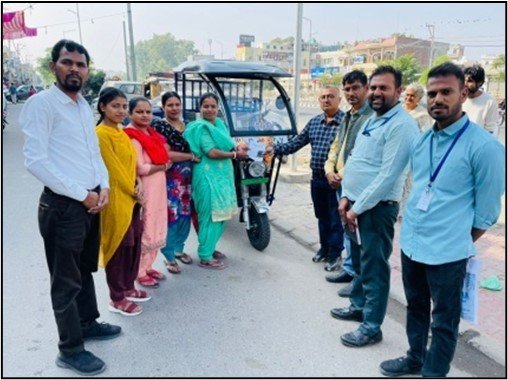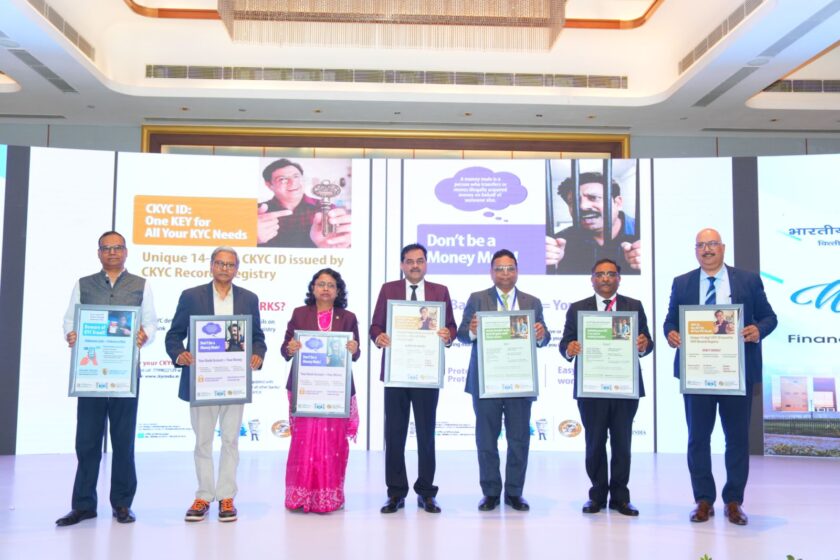Chander Mahadev
Amritsar: The role of women spearheading the sanitation success story has been well documented. However, battling near insurmountable odds and emerging trumps with the help of FINILOOP, here is an inspiring journey of a group of women who work as rag pickers in the vibrant city of Amritsar. These bunch of determined women, known as Komal Self-Help Group (SHG) reside in the Bangla Colony and have played an exemplary role in vastly improving their socio-economic conditions and at the same time enhancing the cleanliness of the city. Their story is one of dispute resolutions, resilience, unity, and empowerment.
Initially, these women roamed around different areas of the city, collecting garbage and selling it to support their families. Recognizing the potential of mutual cooperation, they formed Komal Self Help Group (SHG). Their primary goal was to address the pressing needs of their daily lives while making small savings. To formalize their efforts, they opened a bank account under the group’s name.However, as with any collective endeavor, challenges arose, and the group faced internal disputes and lack of coordination. Regrettably, the group disbanded, leaving the women heartbroken and disillusioned.
The tide turned when during a field visit; a few members of the group crossed paths with representatives from FINILOOP—a project initiated by Trust of People in collaboration with The IKEA Foundation. FINILOOP aimed to establish a sustainable plastic management system in Amritsar while improving the livelihoods of rag pickers like the resilient women in question.
FINILOOP representatives shared the objectives of their project. The women, recalling their previous group experience, expressed their desire to rebuild and re-ignite their forum. Recognizing the potential in this rekindled spirit, the FINILOOP team offered to facilitate a comprehensive discussion with all the women involved. Initially, gathering the women in one place proved challenging, as they were dispersed throughout the settlement. After considerable effort, the women assembled, and the FINILOOP team formally reiterated the project’s goals. They provided detailed insights into the benefits of re-establishing a Self-Help Group (SHG).
Inspired and rejuvenated, the women unanimously consented to embark on this journey. The FINILOOP team reactivated the group’s bank account in coordination with the In pursuit of the project objectives, the team successfully facilitated the acquisition of a Rs 1 lakh loan This initiative enhanced the income-generating capabilities of the SHG. Subsequently, the team engaged in discussions with the bank to secure the loan and organized a meeting with theSHG group to strategize its optimal utilization.

Further, the FINILOOP team provided comprehensive training, enabling them to produce organic fertilizers. Collaborating with the Municipal Corporation of Amritsar, the team facilitated the creation of organic manure from wet waste at the Material Recovery Facility (MRF) center. In addition to their rag-picking activities, the women dedicated some part of the day to producing compost. They diligently attended the MRF center to manage wet waste, sprinkle water, and sell the compost in various colonies. This additional income source significantly improved their financial well-being.
Meanwhile, a unanimous decision was reached within the group to allocate the loan funds towards the procurement of an e-rickshaw. The intended purpose of the e-rickshaw includes waste collection, transportation for compost sales, and the movement of waste materials, thereby creating avenues for additional income.
The Rs 1 lakh loan amount will be deposited as an advance payment, with the remaining sum disbursed in instalments. The FINILOOP team has engaged the e-rickshaw to support Solid Waste Management (SWM) activities.
The success story of the Komal Self Help Group showcases the transformative power of unity, determination, and the support of initiatives like FINILOOP. These women have not only contributed to the cleanliness of their city but have also empowered themselves economically and socially.










